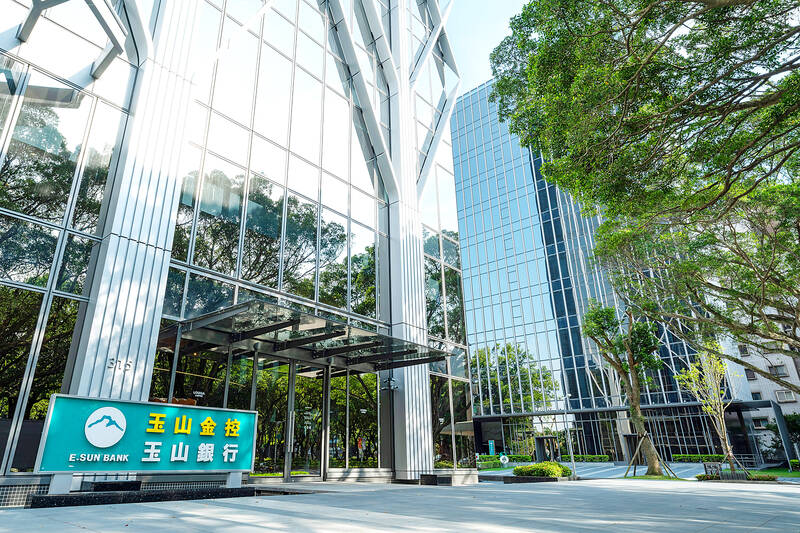E.SUN FHC has announced the publication of its “2023 Climate and Nature Report”, the first report of its kind in Taiwan to receive third-party verification under the Taskforce on Nature-related Financial Disclosures (TNFD) framework. This report successfully passed the British Standards Institute’s (BSI) first-ever conformity check on the TNFD framework, achieving the highest grade of “Level 5: Excellence”. Additionally, it has also earned the highest grade of “Level 5+: Excellence” for climate-related financial disclosures (TCFD).
E.SUN was the first financial institution in Taiwan to publish a joint TNFD and TCFD report in 2022. We further joined the ranks of TNFD Early Adopters at the beginning of 2024, announcing our commitment to align with TNFD disclosure standards. This report incorporates the LEAP assessment approach for investment and financing positions in Taiwan, reviewing over 35,000 domestic corporate operation sites and more than 120,000 mortgage collateral locations. In addition to utilizing international databases and methodologies, our evaluation is enhanced with localized data, including 51 operational characteristics and geospatial indicators, forming 31 data layers. Furthermore, this report trials the TNFD’s nature scenario analysis, assessing the impacts of biodiversity loss and water stress scenarios on our investment and financing portfolio.
E.SUN is committed to integrating sustainability into its financial operations, encouraging corporate investment in resources, and establishing sustainable development goals. Through collaboration with the Agricultural and Food Agency, the Corporate Synergy Development Center, and the Tse-Xin Foundation, E.SUN launched the “Leopard Cat Loan Project” to provide financial support for agricultural producers seeking Traceable Agricultural Product verification, organic certifications, and Ministry of Environment Green Mark labeling. Moving forward, E.SUN plans to expand the Farm to Table sustainable food value chain, promoting a harmonious relationship between food production and nature.

Photo courtesy of E.SUN FHC
Since 2008, E.SUN has partnered with the Ministry of Agriculture’s Forestry and Nature Conservation Agency, National Taiwan University, and other organizations to continue its investment in tree planting and educational outreach activities. E.SUN also held the “No Net Loss and No Deforestation Forum” in November alongside Chunghwa Telecom, pledging to uphold biodiversity and refrain from deforestation. By joining forces with its customers and the broader community, E.SUN strives to protect vital forest resources.
E.SUN FHC Chairman Joseph N.C. Huang stated, “A good ESG strategy is fundamentally a good business strategy.” The transition from addressing climate issues to tackling nature-related challenges is laden with daunting tasks that require firm resolve and strong execution to overcome. In addition to our commitment to achieving net-zero emissions by 2050, E.SUN also endeavors to mitigate its impact on nature and aims to achieve “Nature Positive”. E.SUN will continue to actively exert a positive influence, driving sustainable transformation through innovative financial services and collaborative actions, and working alongside corporate partners and peers to create a beautiful home in harmony with nature.
Note: The current highest grade given by BSI for TNFD conformity is “Level 5: Excellence”, while the highest grade for TCFD conformity is “Level 5+: Excellence”.
Report Link: E.SUN FHC 2023 Climate and Nature Report

SETBACK: Apple’s India iPhone push has been disrupted after Foxconn recalled hundreds of Chinese engineers, amid Beijing’s attempts to curb tech transfers Apple Inc assembly partner Hon Hai Precision Industry Co (鴻海精密), also known internationally as Foxconn Technology Group (富士康科技集團), has recalled about 300 Chinese engineers from a factory in India, the latest setback for the iPhone maker’s push to rapidly expand in the country. The extraction of Chinese workers from the factory of Yuzhan Technology (India) Private Ltd, a Hon Hai component unit, in southern Tamil Nadu state, is the second such move in a few months. The company has started flying in Taiwanese engineers to replace staff leaving, people familiar with the matter said, asking not to be named, as the

The prices of gasoline and diesel at domestic fuel stations are to rise NT$0.1 and NT$0.4 per liter this week respectively, after international crude oil prices rose last week, CPC Corp, Taiwan (台灣中油) and Formosa Petrochemical Corp (台塑石化) announced yesterday. Effective today, gasoline prices at CPC and Formosa stations are to rise to NT$27.3, NT$28.8 and NT$30.8 per liter for 92, 95 and 98-octane unleaded gasoline respectively, the companies said in separate statements. The price of premium diesel is to rise to NT$26.2 per liter at CPC stations and NT$26 at Formosa pumps, they said. The announcements came after international crude oil prices

SinoPac Financial Holdings Co (永豐金控) is weighing whether to add a life insurance business to its portfolio, but would tread cautiously after completing three acquisitions in quick succession, president Stanley Chu (朱士廷) said yesterday. “We are carefully considering whether life insurance should play a role in SinoPac’s business map,” Chu told reporters ahead of an earnings conference. “Our priority is to ensure the success of the deals we have already made, even though we are tracking some possible targets.” Local media have reported that Mercuries Life Insurance Co (三商美邦人壽), which is seeking buyers amid financial strains, has invited three financial

CAUTION: Right now, artificial intelligence runs on faith, not productivity and eventually, the risk of a bubble will emerge,’ TIER economist Gordon Sun said Taiwanese manufacturers turned more optimistic last month, ending a five-month streak of declining sentiment as concerns over US tariffs, currency volatility and China’s overcapacity began to ease, the Taiwan Institute of Economic Research (TIER) said yesterday. The manufacturing business confidence index rose 1.17 points from June to 86.8, its first rebound since February. TIER economist Gordon Sun (孫明德) attributed the uptick to fading trade uncertainties, a steadier New Taiwan dollar and reduced competitive pressure from Chinese producers. Taiwan’s semiconductor industry is unlikely to face significant damage from Washington’s ongoing probe into semiconductors, given the US’ reliance on Taiwanese chips to power artificial